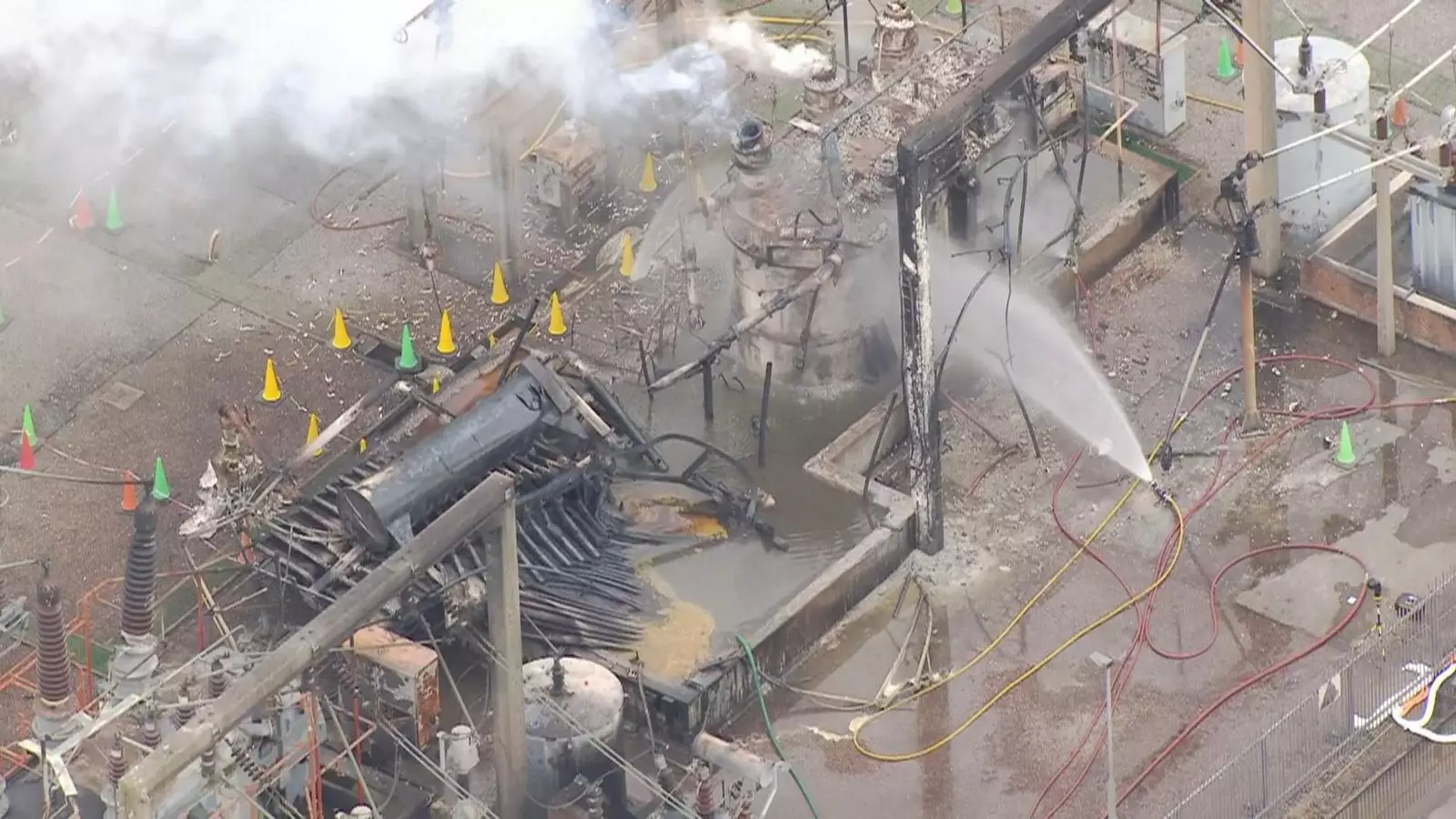Heathrow Airport, a colossal hub serving more than 83.9 million passengers annually, recently found itself in the eye of a storm—one provoked not by passengers but by a catastrophic power outage. This event, which began with a fire at an electricity substation in Hayes, swiftly escalated into chaos, disrupting around 1,300 flights. The fallout was not just operational; it embodied a harrowing weakness in the backbone of one of the world’s busiest airports.
What is troubling to me, as a vox populi in today’s socio-political climate, is the realization that a report from consultancy firm Jacobs, drafted over ten years ago, highlighted a critical weakness in Heathrow’s electrical supply system. It warned of the inherent risk of “main transmission line connections” and acknowledged that outages could lead to widespread disruption affecting passenger handling and baggage operations. Yet, even with this knowledge, measures for mitigation seem to have been inadequate, almost disregarded. The question arises: How does an institution of Heathrow’s magnitude allow such warnings to fade into irrelevance?
Reliance on Resilience: A False Sense of Security
John Pettigrew, Chief Executive of National Grid, publicly claimed post-incident that “there was no lack of capacity” from their substations, casting a veil of confidence over the situation. He delivered this assertion as if it were an exoneration. While two other substations were “available,” this reasoning feels oddly superficial upon closer examination. Can we really celebrate a safety net that, in the event of a critical failure, still allows over a thousand flights and, subsequently, hundreds of thousands of passengers’ plans to unravel?
Resilience is a word thrown around in corporate boardrooms, but it is often more about optics than actual operational capability. This begs the question: Should we as a society accept the narrative spun by leaders when the evidence seems to dance around the truth? The narrative of resilience in light of such monumental failure feels hollow and continues to raise accountability issues. When will companies, especially those that directly affect public welfare, rise beyond mere assurances and truly prioritize robust infrastructure?
A Ripple Effect: The Human Dimension of Failure
While the stats surrounding airport operations often get lost in numbers, we must remember the human element at play. The disruption at Heathrow not only stranded travelers but also significantly impacted airport staff and associated businesses, from hotels to transport services. The very fabric of community and commerce that airports like Heathrow support was rent by an oversight that could have been mitigated with proper attention to past warnings.
The economic repercussions ripple far beyond the immediate logistics of flight cancellations. Every passenger represents a web of relationships, plans, and economies affected by misplaced trust in a system that promises uninterrupted service. As a center-left liberal, I find this particularly galling; the notion of public service should not be a mere tagline but a commitment that demands consistent investment and care.
Learning from Mistakes: A Call for Accountability
Post-incident statements from Heathrow’s executives have repeatedly pointed to the “unprecedented” nature of the transformer failure. However, how can we view such an occurrence as unprecedented when warnings existed for a decade? The term ‘unprecedented’ unfortunately connotes an absolution, as if errors could never have been foreseen or avoided.
We, as a society, need to confront the uncomfortable reality that these discomforts are not isolated incidents. They stem from operational negligence and a lack of adaptive response to evolving risks within the framework of public infrastructure. Rather than allowing institutions to hold onto catchphrases and buzzwords synonymous with resilience, it is time we demand more transparent accountability. The public deserves answers that align with their everyday experiences, not just corporate jargon delivered post-failure.
While emergency responses might work to rectify immediate issues, laying the blame solely on an isolated anomaly will not assist us in averting future disasters. We must scrutinize not just the events that unfold but the systems underpinning them, lest we find ourselves examining another disastrous oversight down the road.


Leave a Reply